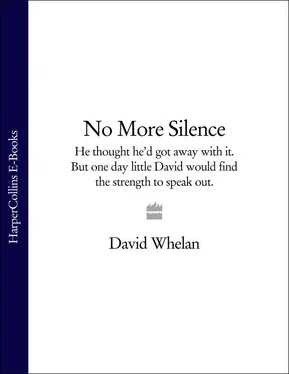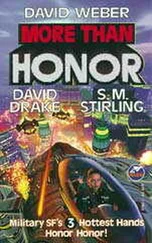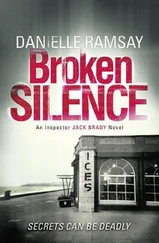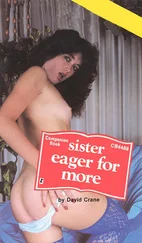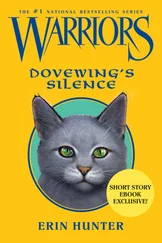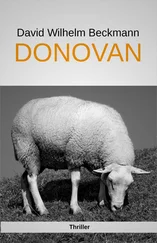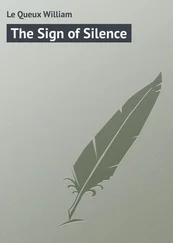‘That’ll teach you,’ said Corky, rather unsympathetically, I thought.
There is little room in the island mentality for moral weakness or gobstoppers. I believe moral weakness was expected of us – we were the ‘city slickers’, for ever the outsiders, but we were strangers who were exotic and welcomed because of it. Even our surname set us apart among friends with names such as Mary McIntosh, Alistair McDougall, Donald Archie McKay, Susan McCluskey and the gloriously named Marina Sherwood. There were also more MacDonalds than you could shake a stick at.
Many of the children arrived at the village school in boats, which fascinated me no end. It was Irene’s job to ring the big hand bell that demanded they come to class, a task she performed with relish. Mr Blance, the headmaster, ruled with a rod of iron over the proceedings, and while the tawse – a leather belt used for corporal punishment – stayed in his desk drawer mostly, the threat of it was ever present.
My introduction to the Gaelic had already begun around Morag’s great Aga, but it was reinforced every morning as I passed the wall chart that recorded the days of the week and numbers up to 10 in both languages. Despite our being different from these uncomplicated island folk, so secure in their heritage and place in the world, they welcomed us with their revered Highland hospitality. Long days passed in an atmosphere of kindness and laughter.
It wasn’t all drifting along on fluffy white clouds, however. Youngsters of today could not conceive of children, from the youngest to the eldest, working in the fields – the back-breaking work of scything hay and cutting peat until the blisters on your hands are transformed into calluses. I can feel them still today.
If Morag ruled the home, Willie’s domain was the fields. Willie was a typical crofter, forever mucking out, herding cattle and shearing sheep. His sheepdog, Tidy, would round up Billy and his ilk, answering Willie’s every shrill whistle of command. When he was not tending animals, Willie would deploy his enormous strength to the crops. He could swing the scythe through hay as if he were cutting tissue paper. Willie appeared to work every daylight hour that God sent. When the Aga in the kitchen was not providing food, it was drying his outer clothes after a day in the elements.
He had one despicable bad habit that to this day makes me queasy. He would blow his nose and deposit the contents on the ground. Even a snotty-nosed ‘keelie’ from Glasgow had enough manners to know a hankie should be used. However, in the scheme of things, it was a forgivable fault. And for those with the experience, there is no finer feeling in the world than laying down your tools at the end of a hard day’s work. What a glorious feeling to see the arrival of the tractor that would take you home to one of Morag’s dinners. By now, my belly aches were a thing of the past. You may have all the money and possessions in the world, but there is nothing more precious than rest and filling yourself with good food.
Then there’s the added joy of the bath. Bath time in the MacDonald household consisted of lining up with your towel beside the great tin bath, which Morag had filled with hot water from the contents of endless kettle runs. The pecking order was youngest to eldest, a happy position for me: I always washed in the cleanest water. Morag would dry us in front of the fire with a rough, if kindly, touch and make us squeal with laughter by hitching up her skirt and warming her legs by the fire. It was a favourite pastime, leading to what we Scots describe as ‘corned-beef legs’ – hot red patches on our traditionally pale skin. She would quickly return to decorum when the croft door, which was never locked, opened to admit a guest. Our childhood was populated by the people who congregated in our home, prattling away in Gaelic. Not a lot happened in such an isolated community, but they could gossip for hours.
The arrival of a visitor was the signal for the children to go out and play. Hide and seek among the hayricks was a favourite, but it was the sandy machair that became my adventure playground. Machair is a Gaelic word describing the extensive fertile plain that lies between the sea and the cultivated land. It is unique to the Western Isles and a world-class conservation site. We would roam far and wide, exploring fjord-like sea lochs that stretched to infinity and from which came the blustering Atlantic winds that had long since blown away the grime of the city from our life. We could hear Morag and Jeanette’s voices in the distance, calling us in for our tea, but we would ignore them. Only when Morag’s voice darkened with anger did we realise we had run to the end of our rope. Jeanette would then appear at the side of the croft, waving a white tea-towel – a flag of truce. To ignore that signal was to go to bed hungry. We invariably made it back in time for dinner, although Johnny did on one occasion run out of the invisible rope.
One of the great treats of childhood on the island was the frantic run home in time for the arrival of the big, green Co-operative Stores van, which motored between the crofts. Ian MacDonald drove the van and his wife, Ina, served. Their nod to corporate image was matching beige shop coats. This rolling Aladdin’s cave could be seen for miles, your anticipation growing as it drew ever nearer. Ian and Ina brought wonderful treats – iced buns and glorious cakes with names such as Eiffel Towers. We were given first pick. On one occasion, this was not good enough for Johnny. He was sent to the van for a message and spent some of Morag’s change on sweeties. She was furious: ‘I’ll not have any boy stealing in my house. Now get up to your bed and lie and think about what we will be eating tonight while you go hungry.’
The recalcitrant Johnny climbed out of the bedroom window in his bare feet and dropped down into the courtyard at the rear of the croft. He went to the barn, got on his bike and pedalled off across the fields to the shop in the village. Alas, the dreary Reverend MacDonald saw him pedalling along, captured him and returned him to the croft. The minister had barely departed when Johnny was seriously cuffed about the ears. ‘You’ve black affronted me, out in your bare feet,’ said Morag, using the Scots phrase for being mortified.
Of course, his caring brothers and sisters thought long and hard about the nature of his wrongdoing and the justice of righteous punishment. How we laughed.
Laughter was a constant companion. It was such a joy for a little boy who was still in many ways the timid child in the corner, who could take fright at things that had no power over other children – such as Santa. Santa is rarely perceived to be ominous, but he scared the hell out of me on my first Christmas on the island. We trooped off to the laird’s ‘big house’, Calarnais House, for the annual bash. The ground was thick with snow and we poured into the elegant surroundings of another way of life entirely. I occupied my usual position in the corner and waited for the arrival of this legendary figure. Father Christmas had not featured large in my life until that time. When he arrived with his great white beard and red coat, I ran for it, straight into the heavily decorated tree. I was trapped in the tree, tied up by tinsel, with only my legs visible as it slowly toppled. Poor Santa was only helping when he attempted to extricate me, but the sight of his big red face made me howl even louder.
Santa said, ‘My, my, what a lot of noise from such a wee boy.’ He rummaged in his sack and a brightly wrapped present materialised. ‘Now, see what Santa’s got for you,’ he said kindly.
I bawled and refused the gift. My brothers and sisters pushed me forward, but Santa’s smiling face served only to make matters worse. I bawled louder. I was led from the room, tear-stained and howling. The journey back to the croft seemed dark and terribly long. I got a few sore ‘nips’ in retribution from Jimmy and Johnny. They, too, were empty-handed, thanks to me. I had failed them. Never been a big fan of Santa ever since.
Читать дальше
